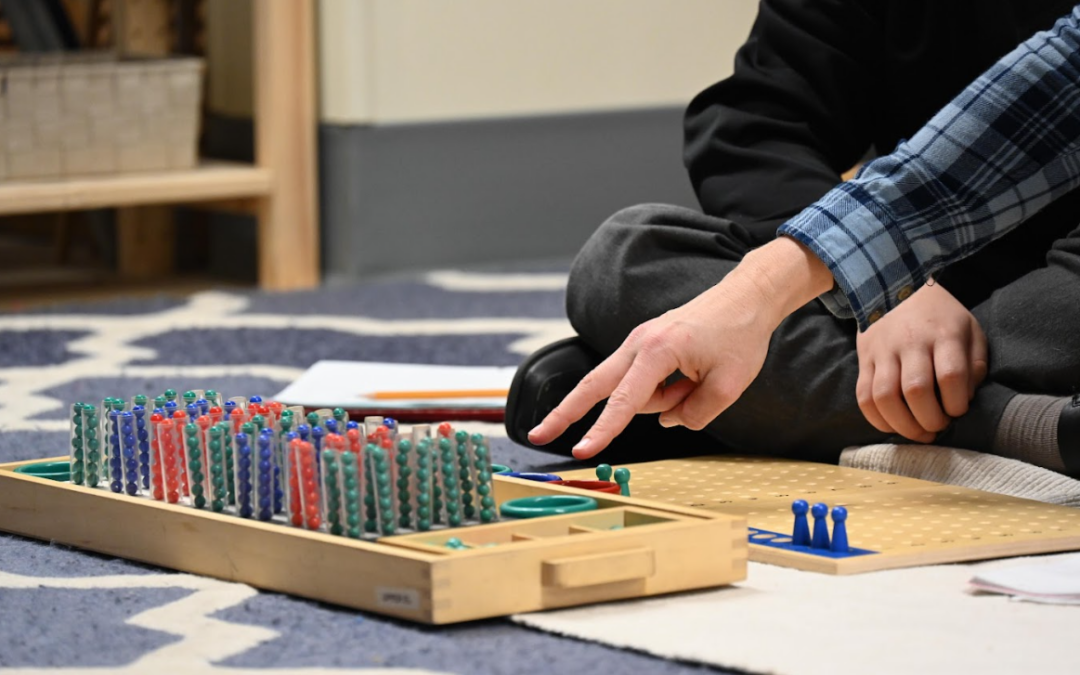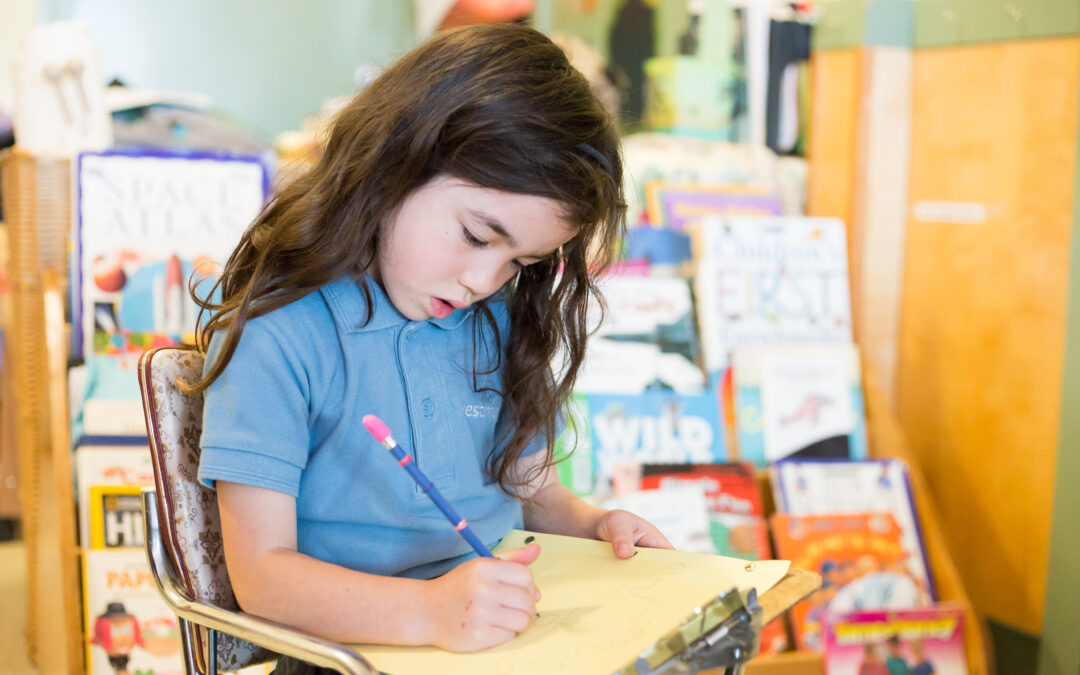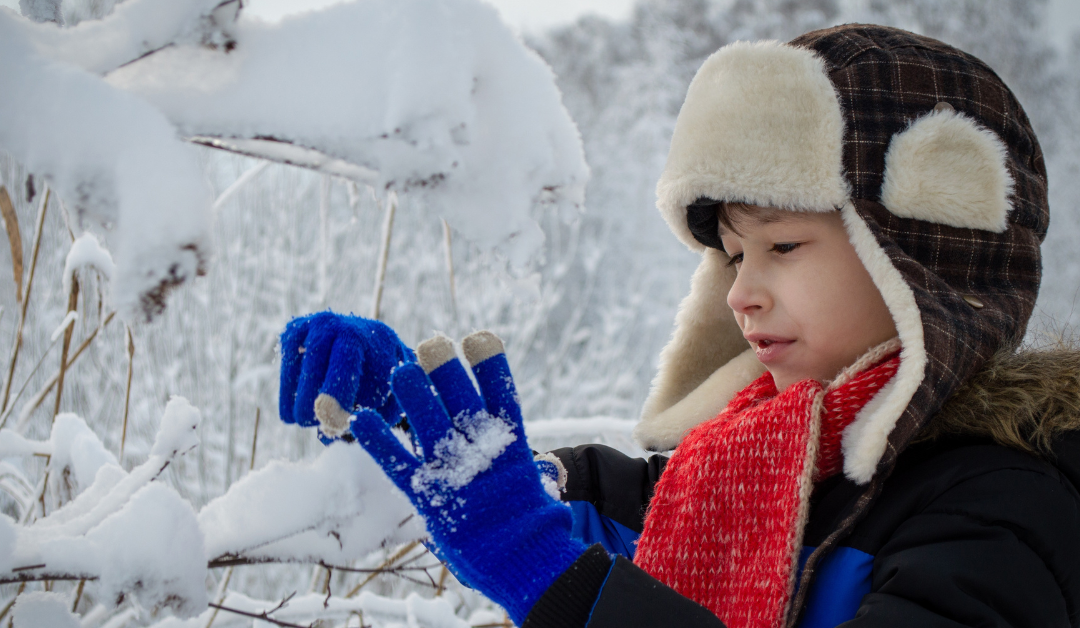
What Victoria Parents Need to Know About School Cell Phone Bans
What Victoria Parents Need to Know About School Cell Phone Bans
School Cell Phone Bans: The Great Debate
Are phone bans the answer? Westmont explores what Victoria parents should know about classroom cell phone restrictions and student engagement.
Twenty-two states passed cell phone restrictions in 2025 alone. New York became the largest state to implement bell-to-bell bans. Massachusetts mandated phone-free schools by fall 2026. California, Florida, South Carolina, and dozens more followed suit, locking student phones away from morning attendance to final dismissal.
But here’s what nobody’s talking about: the phone isn’t the problem.
When students reach for their phones every three minutes during class, when they check Instagram instead of listening to lectures, when they text friends while their teacher explains quadratic equations, we see a symptom. Not a cause. The real question isn’t whether we should ban phones. It’s why students would rather be anywhere else than fully present in their own education.
Why so many schools are banning phones right now
The movement gained momentum fast. By December 2025, thirty-five states and Washington, D.C. enacted laws or policies restricting student cell phone use in classrooms. Oklahoma implemented a year-long ban. Wisconsin required districts to prohibit phones during class time. New Jersey mandated that schools develop policies blocking phone use on campus during the entire school day.
The timing wasn’t random. U.S. Surgeon General advisories on youth mental health and social media’s harmful impacts pushed the issue into public conversation. UNESCO recommended limiting phone use in schools worldwide. Policymakers from both parties united behind a rare bipartisan cause, and the Biden-Harris administration promoted online safety for youth.
Research provided ammunition. A Pew Research Center survey found 72% of U.S. high school teachers say cellphone distraction is a major problem in the classroom. Common Sense Media reported that 97% of students aged 11 to 17 used their phones during the school day, with a median of 43 minutes of daily in-school screen time. Some students logged up to six and a half hours.
Parents worried about emergency communication. Districts like Los Angeles Unified School Board voted to ban phones and social media during school hours in June 2024, with policies taking effect in February 2025. New York allocated $13.5 million for phone pouches and storage solutions. Schools purchased locking pouches, installed phone lockers, and created detailed enforcement procedures.
The message was clear: phones are distracting our children. Remove the distraction, restore focus. Problem solved. Right?
What the research actually says about phones and learning
The data tells a more complicated story than simple bans suggest. Rutgers University researchers found that phone distraction harms not just students using devices, but everyone in the classroom. When phones were allowed, even students who didn’t use them scored worse on end-of-term exams, suggesting device use damages the group learning environment. Another study showed students distracted by classmates’ phone use scored 15 points lower in mathematics than students in phone-free environments.
But the relationship between phones and learning isn’t uniformly negative. Research from China involving over 10,000 college students found that using mobile learning and news apps increased academic performance, while playing video games and engaging in social media decreased it. When teachers prompted students to use smartphones to assist with instruction, performance gains increased significantly compared to when phones were banned entirely.
The distinction matters. Educational researcher studies revealed that about 80% of students spent time distracted on smartphones when allowed to use them at will, with an average of 57% of their distraction time on phones. However, students spent similar amounts of time learning regardless of whether phones were banned or allowed. This consistency suggests inherent limitations of attention spans prevent students from allocating 100% of lecture time to learning, phones or no phones.
What happens when students do pull out their phones? They switch between academic tasks and their devices an average of 3.52 times during an hour-long lecture. Each switch costs them. Students can take up to 20 minutes to refocus on learning after being distracted. The number of times students checked phones correlated negatively with academic performance. Just the mere presence of a phone, even with the screen off, can harm ability to fully focus on tasks.
But here’s what the research also reveals: the causes of phone distraction include boredom and monotonous learning, notifications and checking habits, academic use, social influence, and coping strategies for difficulty understanding material. Phone use isn’t just triggered by technology but by psychological, social, and learning conditions.
The case for phone bans: focus and mental health
The arguments supporting bans are substantial. Teachers report that classroom management became nearly impossible with constant phone use. Imagine trying to conduct a meaningful discussion when half the class is scrolling through social media. Picture attempting to explain complex concepts while students receive notifications every few minutes. Consider the challenge of building community when teenagers are physically present but mentally elsewhere.
Mississippi Lieutenant Governor Delbert Hosemann noted that research shows the decline in mental health among children and adolescents is connected to near-constant smartphone and social media use. He emphasized that students should concentrate on learning, not texting during classroom instruction. School safety and ensuring parents can contact their children are important concerns, but those must be balanced against protecting classroom learning from distractions.
The mental health connection runs deep. Students report anxiety from constant connectivity. They compare themselves to the curated, flawless lifestyles displayed on Instagram and TikTok. They fear missing out on social interactions happening in real time while they’re stuck in geometry class. One Oklahoma teen described how her state’s phone ban allowed her distance from Instagram’s endless comparisons, freeing time to read science fiction and dystopian novels instead of staying glued to her phone.
Research from the University of Southern California found that 78% of teens reported their schools have policies limiting or completely banning phones in 2026. While only 40% of teens support classroom phone bans, the majority of adults favor restrictions. Notably, students with bell-to-bell bans report using cell phones much less during lunch and in hallways, suggesting the policies achieve their immediate goal of reducing phone use.
Without phones, some teachers report improved classroom dynamics. Students make more eye contact. Conversations happen during lunch. Attention spans seem longer. The constant pull toward digital distraction lessens, at least during school hours.
The case against bans: autonomy and real-world skills
But removing phones doesn’t address why students reach for them in the first place. And it may create new problems while solving immediate ones. College students strongly resist instructor actions that make them feel infantilized. Policies that attempt to police student behavior can damage rapport, making students less likely to seek support or engage actively in learning. This matters because the relationship between students and teachers forms the foundation of effective education.
There’s also the autonomy question. The world these students will enter after graduation includes ubiquitous technology. They’ll need to manage their own attention, regulate their own behavior, and make their own decisions about device use. When do they learn these skills if we simply remove the temptation? When does self-regulation develop if we rely on external control?
Digital citizenship doesn’t emerge from compliance. It develops through practice, failure, reflection, and growth. Students need opportunities to make choices about their technology use, experience the consequences, and develop their own strategies for managing distraction. They need to learn how to determine when a phone supports their goals and when it undermines them.
Some students require phone access for legitimate reasons. Medical conditions that need monitoring. Learning accommodations that depend on specific apps. Mental health support systems accessed through devices. While most policies include exceptions for these situations, enforcement becomes complicated. Schools must verify needs, make individual accommodations, and ensure equity while maintaining overall restrictions.
Parents worry about emergency communication. What if there’s a school threat? What if a child becomes ill? What if family situations require immediate contact? Schools address these concerns by maintaining office phones, creating emergency protocols, and allowing limited access in certain situations. But the anxiety persists, and not without reason given legitimate safety concerns in modern schools.
The real problem isn’t the phone—it’s student engagement
Here’s what gets lost in debates about phone policies: when learning is compelling, students don’t reach for their phones. When curriculum connects to their lives, their interests, their questions about the world, they stay present. When they have agency over their education, when their voices matter, when they’re genuinely challenged and supported, phones stay in pockets.
Research on digital distraction in education reveals that boredom and monotonous learning constitute major causes of phone use. Traditional lecture formats without breaks for interaction strain student attention, making students more likely to seek new input from their devices. The teaching modality isn’t the only factor creating student boredom, but incorporating engagement during class sessions reduces opportunities for students to lapse into boredom and use phones.
Think about it. How often do students pull out phones during an activity that captivates them? When they’re debating ideas they care about? When they’re building something with their hands? When they’re tackling challenges that genuinely push their thinking? The phone can’t compete with authentic engagement because authentic engagement meets fundamental human needs: connection, competence, autonomy, purpose.
The phone ban debate reveals deeper questions about the state of education. If our response to distraction is confiscation, what does that say about our confidence in the learning we’re offering? If we need external controls to keep students focused, are we addressing engagement or just managing symptoms?
We’ve created educational environments where many students feel like time is something to endure rather than experience. Where learning happens to them rather than with them. Where curiosity gets scheduled into forty-minute blocks and assessed with multiple-choice questions. And then we wonder why they’d rather be on TikTok.
How progressive schools handle technology differently
Our approach starts from a different place entirely. We begin with the assumption that humans, including adolescent humans, are naturally curious, naturally engaged, naturally drawn toward meaningful challenge when given the opportunity. The question becomes: how do we create conditions where that natural engagement can flourish?
In our High School program, students tackle real-world projects that integrate academic content with questions they actually care about. When a student is designing a sustainable agriculture program with a local farm partner, analyzing data on crop yields, creating business plans for marketing produce, they’re not reaching for their phone out of boredom. The work itself demands their full attention because it matters, because it’s real, because they have ownership over the outcome.
When students work on building food truck business plans, creating alternative energy systems, or preparing for international learning experiences, technology becomes a tool rather than a distraction. They use their phones to contact mentors, research industry standards, document their progress, collaborate with partners. The device serves their goals rather than competing with them.
This doesn’t mean phones are unrestricted. It means restrictions emerge from the work itself rather than from external control. A student focused on building a functioning alternative energy station doesn’t have time for Instagram. A group preparing their Mont-Talk presentation to parents and peers cares more about their project than their notifications. Intrinsic motivation crowds out distraction.
Our multi-age classrooms across all levels create natural accountability. When younger students see older students deeply engaged in their work, they absorb expectations about how we use our time here. When community members depend on each other for collaborative projects, phone distraction affects more than just the individual. Social learning shapes behavior more powerfully than any policy.
We also teach explicitly about technology use. Students explore research on attention, distraction, and digital wellness. They examine their own phone habits, identify patterns, set personal goals. They discuss strategies for managing notifications, creating boundaries, protecting focused work time. These conversations happen in the context of project work that requires sustained attention, so students experience directly why these skills matter.
Teaching digital citizenship vs enforcing compliance
There’s a fundamental difference between teaching students to manage their own technology use and managing it for them. The first approach develops capacity. The second maintains dependence.
Digital citizenship education includes understanding how platforms are designed to capture attention. Students learn about infinite scroll, autoplay features, notification systems optimized to interrupt focus. They study the business models that profit from their distraction. This knowledge doesn’t automatically translate into perfect self-regulation, but it provides the foundation for informed choice.
Students also need practice with metacognition about their technology use. When do I reach for my phone? What triggers the impulse? How do I feel after scrolling for twenty minutes versus after working deeply on a project? What purposes does my phone serve in my life? Which of those purposes align with my values and goals? These questions can’t be answered in the abstract. They require ongoing reflection in real contexts.
We create structures that support developing self-regulation. Study blocks where phones stay in lockers, not because of a ban but because students have committed to focused work time. Group agreements about phone use during collaborative projects. Individual check-ins about technology patterns and their impact on learning goals. Check-ins that respect student autonomy while providing accountability.
The goal isn’t perfect compliance. The goal is developing human beings who can function in a world where technology is ubiquitous, where attention is constantly under assault, where the ability to choose focus becomes a crucial life skill. That can’t happen if we simply remove the choice.
This requires trust. Trust that given support, information, and appropriate structures, young people can develop better relationships with their devices. Trust that engagement in meaningful work matters more than external control. Trust that human curiosity and the desire for competence are more powerful than the pull of social media when we create conditions that honor those drives.
What parents should ask when schools ban phones
If your school implements or considers a phone ban, certain questions can help you understand the policy’s foundation and implications for your child’s education. What’s the underlying theory of learning that informs this decision? Is the assumption that removing distractions automatically improves engagement? What evidence supports that assumption in your school’s specific context?
How does the school plan to teach students about technology use, digital wellness, and self-regulation? Will these skills be developed elsewhere, or does the ban represent the entire strategy for managing phone distraction? What happens when students leave the controlled environment and need to make their own choices?
What does student input look like in this decision? Have students been part of the conversation? Do they understand the reasoning? Have they had opportunities to propose alternatives or offer insight into why they reach for phones during class? Compliance without understanding produces different outcomes than buy-in based on shared values.
How will the school handle exceptions for medical needs, learning accommodations, or emergency situations? What’s the process for requesting and receiving accommodations? How will equity be ensured so that students who need devices aren’t stigmatized or disadvantaged?
What changes to teaching practice accompany the phone ban? Are teachers being supported to create more engaging lessons, incorporate more active learning strategies, provide more choice and autonomy? Or is the ban expected to solve engagement problems without addressing their roots?
How does the school balance safety concerns with phone restrictions? What protocols exist for emergencies? How can parents contact their children during the school day if needed? These logistical questions matter to families, especially given legitimate safety concerns.
Finally, what’s the school’s vision for student learning? Is the goal compliance and order, or is it developing capable, engaged, self-directed learners? Both matter, but they’re not the same. And the answer to that question reveals much about what kind of education your child will experience.
At Westmont, we believe the path forward isn’t about eliminating distraction through control. It’s about creating conditions where authentic engagement makes distraction irrelevant. Where students are challenged by meaningful work, connected to community, given autonomy over their learning, and supported to develop the self-regulation skills that will serve them for life.
This doesn’t mean phones never present challenges. It means those challenges become opportunities for growth rather than problems to eliminate. It means treating adolescents as developing adults capable of learning complex skills rather than as problems to be managed. It means trusting that human curiosity, properly supported, will always be more powerful than whatever the algorithm is serving up today.



